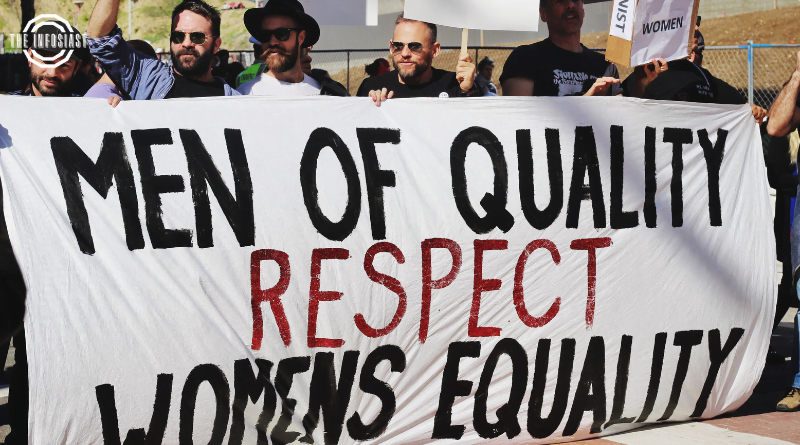
Patriarchy, a system that has historically placed men in positions of power while marginalizing women and non-binary individuals, continues to shape societal norms and structures. Despite significant progress in many parts of the world, its influence remains deeply embedded in institutions, cultures, and mindsets. Addressing patriarchal norms is essential for achieving gender equality and building inclusive societies. This article explores the roots, impact, and steps toward dismantling patriarchy to foster equality.
Understanding Patriarchy in Modern Contexts
What is Patriarchy?
Patriarchy refers to a social system where men hold primary power in roles of leadership, moral authority, and control over resources. Historically, it emerged from agrarian societies where physical strength was prioritized, leading to gendered divisions of labor. Today, patriarchal structures manifest in laws, traditions, and cultural practices that perpetuate unequal power dynamics.
Patriarchy in Everyday Life
The influence of patriarchy is evident in various aspects of daily life:
- Workplaces: Women often face pay gaps, limited opportunities for leadership, and harassment.
- Households: Traditional roles assign caregiving and domestic responsibilities disproportionately to women.
- Education: In some regions, girls are denied access to education, reinforcing cycles of dependency.
- Governance: Political representation often skews heavily male, limiting diverse perspectives in decision-making.
The Impact of Patriarchy
Economic Consequences
Patriarchy creates economic disparities, particularly for women:
- Gender Pay Gap: Women earn less than men for the same work, with global pay gaps averaging around 20%.
- Access to Resources: Women frequently lack access to credit, property ownership, and financial independence.
Social Implications
Patriarchy enforces rigid gender roles, constraining personal and social development:
- For Women: Expectations to prioritize family over career limit aspirations.
- For Men: Societal pressure to conform to “masculine” ideals stifles emotional expression and mental health.
- Intersectional Impact: Marginalized groups, including LGBTQ+ individuals, face compounded discrimination.
Health and Well-being
- Psychological Impact: Gender-based expectations lead to stress, anxiety, and low self-esteem.
- Gender-based Violence: Patriarchy normalizes violence against women, with 1 in 3 women globally experiencing physical or sexual violence.
Progress Toward Gender Equality
Policy and Legal Changes
Governments worldwide are implementing laws to combat gender inequality:
- Equal Pay Acts: Mandating pay equity for equivalent roles.
- Parental Leave Policies: Encouraging shared caregiving responsibilities.
- Domestic Violence Laws: Providing protection and support for survivors.
Educational Interventions
Education plays a pivotal role in dismantling patriarchal norms:
- Gender-sensitive Curriculums: Promoting equality and respect from an early age.
- Empowerment Programs: Equipping girls and women with skills to challenge societal norms.
Economic Empowerment
Economic independence is crucial for breaking patriarchal cycles:
- Leadership Opportunities: Increasing women’s representation in executive roles.
- Support for Entrepreneurs: Providing funding and mentorship to women-led businesses.
Case Studies: Breaking Patriarchal Norms
Iceland’s Gender Equality Model
Iceland consistently ranks as one of the most gender-equal countries, thanks to proactive policies like mandatory parental leave for both parents and quotas for women in corporate boards.
Grassroots Movements in India
Organizations like the Self-Employed Women’s Association (SEWA) empower women in informal sectors by providing resources and advocating for their rights.
Corporate Initiatives
Companies like Salesforce have implemented pay audits to ensure gender pay equity, setting an example for private sector accountability.
Fostering Inclusivity and Challenging Patriarchy
Redefining Gender Roles
Breaking stereotypes is essential for fostering inclusivity:
- Workplaces: Encouraging men to take parental leave normalizes caregiving roles.
- Media Representation: Challenging traditional portrayals of gender through diverse narratives.
The Role of Media and Representation
Media shapes societal perceptions:
- Positive Representation: Films, books, and campaigns showcasing equality inspire cultural change.
- Addressing Stereotypes: Critiquing and reimagining outdated depictions of gender roles.
Grassroots Movements
Community-driven efforts play a vital role:
- Awareness Campaigns: Educating communities on gender equality.
- Local Leadership: Women-led initiatives addressing specific regional challenges.
Challenges and the Way Forward
Challenges
- Cultural Resistance: Deeply ingrained traditions often resist change.
- Intersectionality: Addressing overlapping forms of discrimination requires nuanced approaches.
- Policy Enforcement: Ensuring legal protections are implemented effectively remains a hurdle.
Recommendations
- Advocate for Policy Reforms: Support legislation promoting gender equality.
- Educate and Empower: Foster awareness and provide tools for individuals to challenge norms.
- Engage Men as Allies: Encourage men to participate actively in dismantling patriarchy.
Conclusion
Patriarchy has long dictated societal norms, but progress toward gender equality is possible through collective effort and commitment. By redefining gender roles, challenging stereotypes, and implementing inclusive policies, societies can build a future where everyone thrives regardless of gender. The journey requires persistence, but the rewards of equality and inclusivity are worth pursuing.



